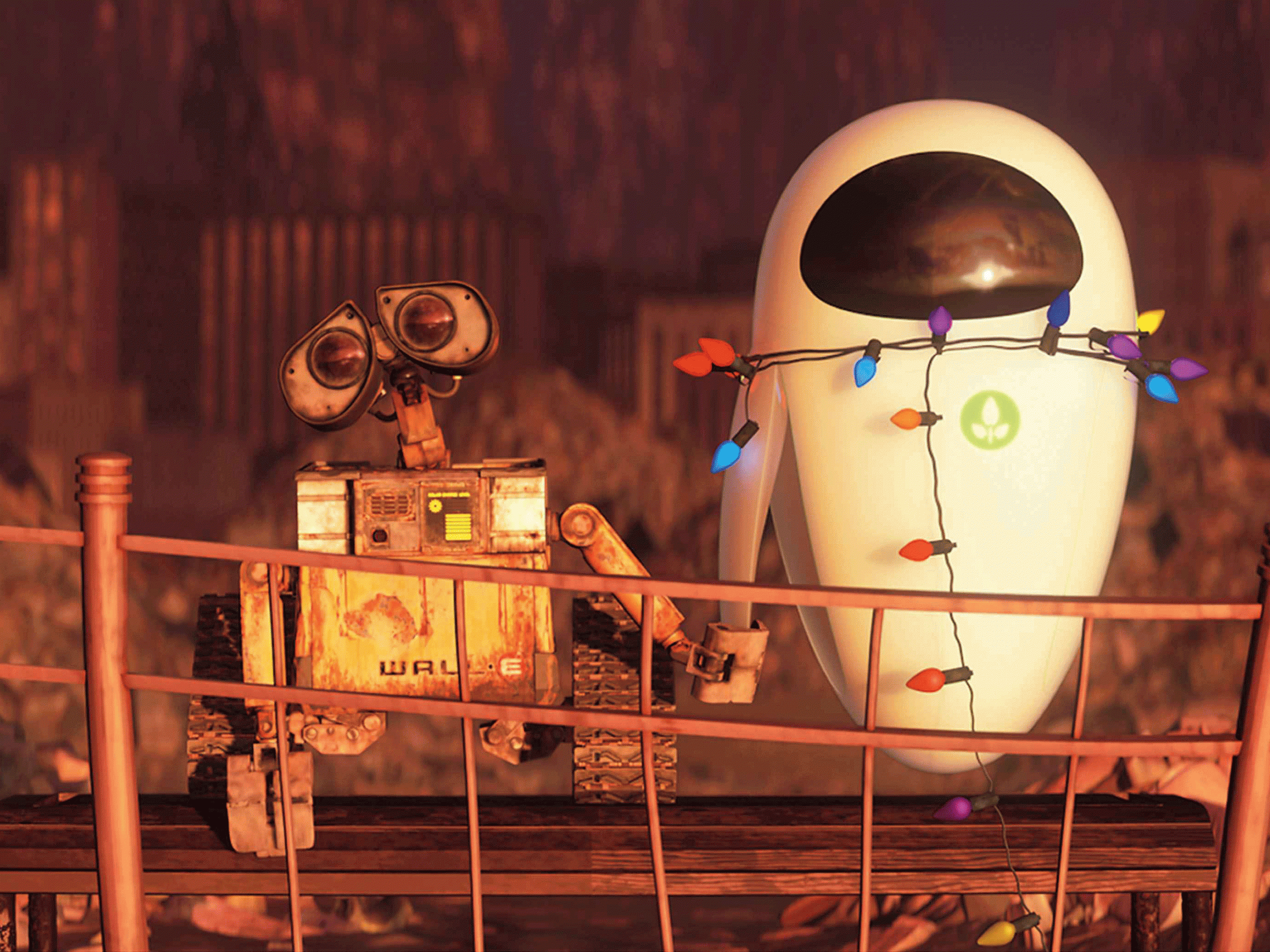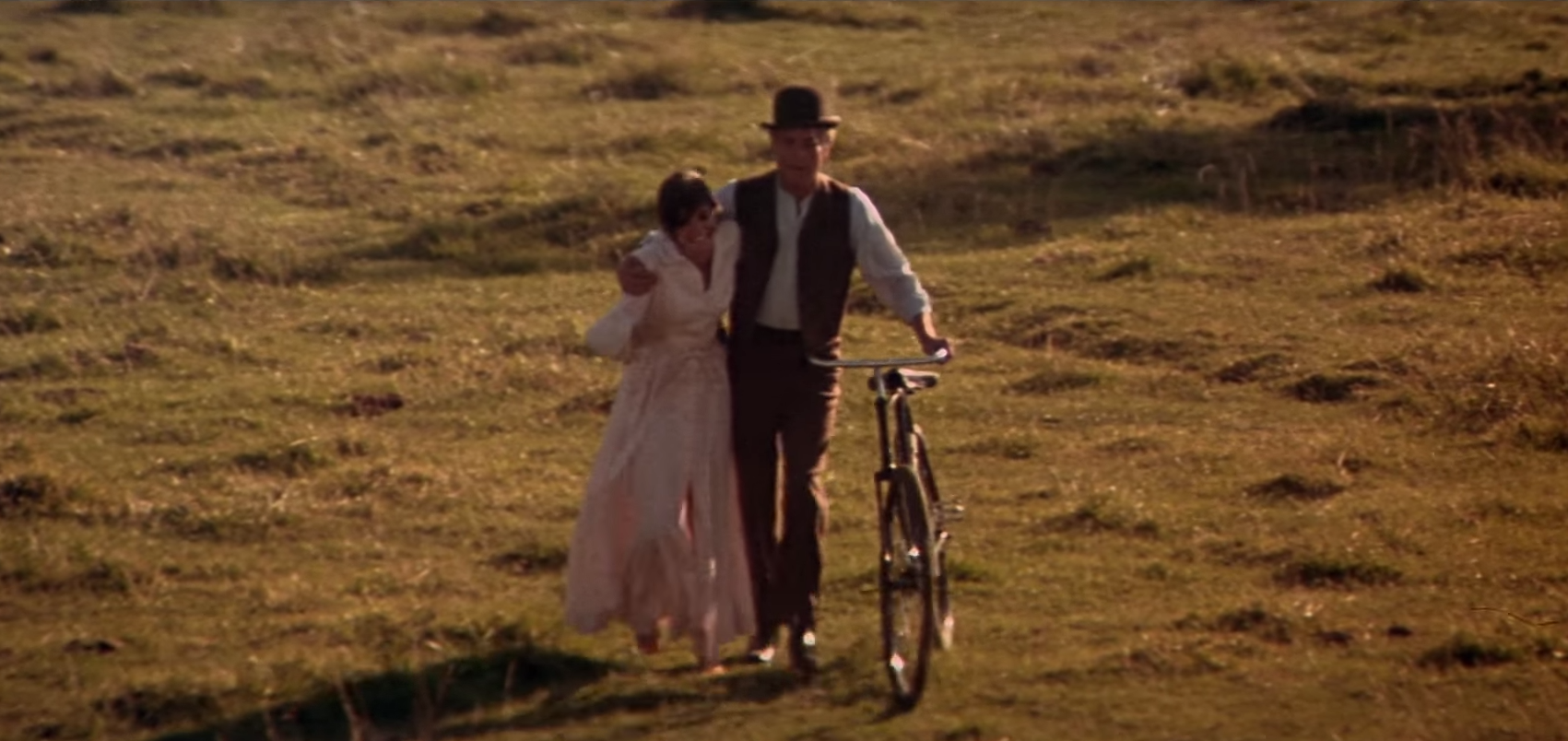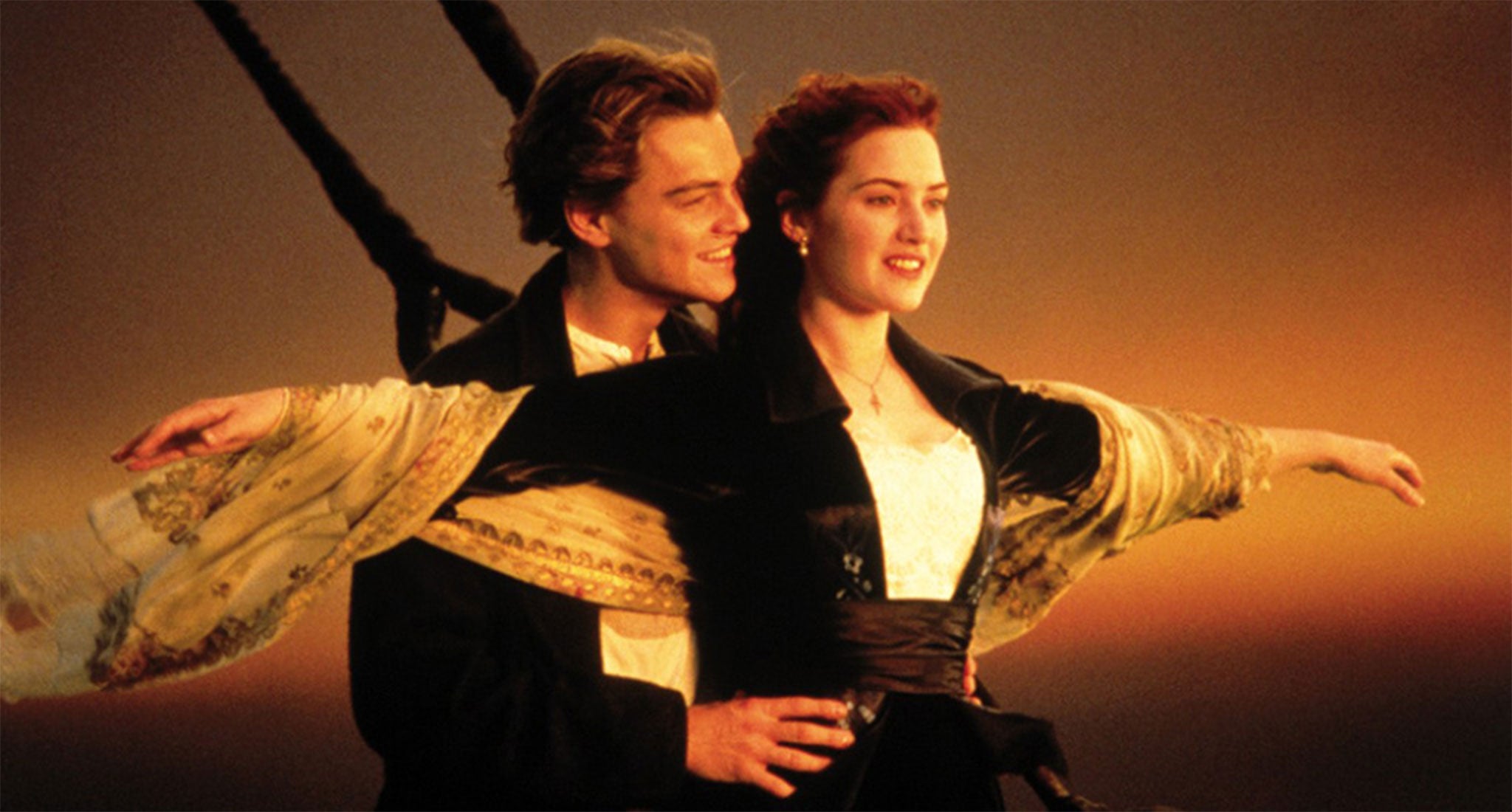BFI Love Season: Arts world figures choose their top romantic moments in film
The British Film Institute is launching a nationwide ‘Love’ season of programming

Your support helps us to tell the story
From reproductive rights to climate change to Big Tech, The Independent is on the ground when the story is developing. Whether it's investigating the financials of Elon Musk's pro-Trump PAC or producing our latest documentary, 'The A Word', which shines a light on the American women fighting for reproductive rights, we know how important it is to parse out the facts from the messaging.
At such a critical moment in US history, we need reporters on the ground. Your donation allows us to keep sending journalists to speak to both sides of the story.
The Independent is trusted by Americans across the entire political spectrum. And unlike many other quality news outlets, we choose not to lock Americans out of our reporting and analysis with paywalls. We believe quality journalism should be available to everyone, paid for by those who can afford it.
Your support makes all the difference.This autumn, the British Film Institute is enticing us in to its warm embrace with its blockbuster “Love” season, a two-month celebration of romantic cinema and television running up and down the UK. From bosom-heaving British period dramas to Bollywood song and dance, the season will explore the joy of new love, the maddening intensity of passion and the timeless struggle to keep love alive. To mark it, we have asked a selection of arts-world figures to tell us their most romantic film moments – those that, without fail, make them go weak at the knees.
David Thomson, Film Critic - Liz and Monty’s farewell in A Place in the Sun (1951)
“Love at the movies depends on being the right age. So, at 11, I saw A Place in the Sun and identified it as my possible place. A beautiful young man from nothing and nowhere (Montgomery Clift) wants the sun and the glorious girl who lives there (Elizabeth Taylor at 18, the voluptuous child). Alas, he’s already got the dowdy Shelley Winters pregnant, so what’s love to do? Well, he thinks of murdering Shelley, and then an accident comes along to help his fearful dream – if that’s how you want to see it. In truth, in 1951, he deserved the electric chair, and he gets it, after one of the screen’s most rapturous farewells, done in telephoto close-ups of Liz and Clift. The lesson was that the most profound love stories cannot be satisfied. Love is a source of perpetual anxiety and incompletion. Desire depends on being thwarted. At 11, on the far shore of love and sex, this film seemed sublime to me, and I love it still – but mostly because I loved it then. I hear the Franz Waxman music in my sleep. We only know we have a heart because it’s broken.”
Olivia Williams, Actress - The bicycle scene from Butch Cassidy and the Sundance Kid (1969)

“It combines two things I love – Paul Newman and a bicycle. I just want to borrow Katharine Ross’s pretty camisole and let Newman carry me around on his handlebars. There’s something about the slanting light and his combination of astounding physical beauty and faultless physical comedy – and then throw in the complication of Ross being Robert Redford’s girlfriend, so the entire afternoon has a longing for something that cannot be - I think I just fainted” (Olivia is in ‘Waste’ at The National Theatre, from 3 Nov)
Tess Morris, Screenwriter - Costner’s ‘I believe’ speech from Bull Durham (1988)
“Annie Savoy (Susan Sarandon) has got Crash Davies (Kevin Costner) and Nuke (Tim Robbins) over to weigh up who she wants to be her lover for the new baseball season. But Crash isn’t the kind to compete like that; he doesn’t believe in Annie’s methods, and when she asks him he what he does believe in, my word, it’s one of the most romantic, sexiest speeches ever. Among other things, Crash believes in high fibre (yup), opening your presents Christmas morning rather than Christmas Eve (exactly) and long, slow, deep, soft wet kisses that last three days (sign me up). I also love Annie’s romantic response to Crash. A breathless ‘oh my’, followed by ‘Alls I want is a date, I’m not going to fall in love with you, or nothin’. Which is exactly what she’s going to do.”
(Tess’s latest film, ‘Man Up’, is available on DVD)
Rosalie Craig, actress - Our robot hero sheltering his advanced robot beloved in Wall-E (2008)
“After saving Eve from a dust storm and taking her to his home, Wall-E shows her a plant. She seizes it and, mission complete, deactivates to nothing but a flashing green light. The way Wall-E tries to cajole her out of her stasis, and his utter devotion is heart-breaking, not least when he holds a threadbare umbrella above her motionless body, while a storm lashes around them.”
(Rosalie is in ‘As You Like It’ at The National Theatre, from 26 Oct)
Rhidian Davies, BFI PROGRAMMER - Greer Garson’s surprise reappearance in Random Harvest (1942)
“Romance cinema is strewn with grand gestures, but some of the most affecting are the quietest. Random Harvest fell out of fashion long ago along with Greer Garson. In it, she rescues a shell-shocked amnesiac ex-soldier, played by Ronald Coleman, who has escaped from an asylum. She takes him home, marries him, and becomes pregnant with his child, but one day he wanders off and doesn’t return. His prior memory has returned, vanquishing all recollection of his present. So, he resumes his life as son and heir of a wealthy businessman. Years pass and he prepares to marry, he calls in his secretary, Miss Hanson, to brief her about his impending nuptials and in walks ... Garson, who calmly crosses the room to sit and take notes. It’s a sublimely surreal moment, like a dream. She has been working for him for some time, waiting for him to recall that she is his wife and rescuer. Despite sounding deliriously old-fashioned, this melodramatic fugue still reverberates today in the storylines of Dr Who and his ‘impossible girl’ guardians.”
Paris Lees, journalist and broadcaster - Di Caprio’s demise in Titanic (1997)

“Because I’m a Nineties kid, I’m going to have to go with Titanic. Several other definitive, 1990s films feature romantic deaths too – think Braveheart and Dracula. But Titanic, ridiculous as it is, sinks all the competition. If you’re heart doesn’t crumple up as a pale, fragile Kate Winslet kisses poor old frozen Leo goodbye, forever, well maybe you have no heart.”
Bill Condon, Director - The lovers reunite in Maurice (1987)
“The movie is based on the novel by E M Forster, the only explicitly gay novel he wrote. He didn’t publish it in his lifetime because he was too anxious about it. Poor Maurice (James Wilby) has been thwarted; he has this schoolboy relationship with Clive (Hugh Grant) who moves on to a closeted heterosexual life. Maurice is still in love with him until Scudder (Rupert Graves), the groundkeeper at the upper-class estate where Maurice is staying, climbs into his bed and they have incredible sex. The big scene is when Scudder is going to emigrate and Maurice tries to stop him but realises he is not at the estate; he returns to the boat house and as he waits for him he utters the sentence ‘Now we shan’t never be parted’. Every good love story needs an obstacle, but the obstacles Maurice has to overcome are both societal and within himself. That he breaks through these is incredibly moving.”
(Bill’s film, ‘Mr Holmes’, is on DVD, from 10 Nov)
Bryony Kimmings, comic & performance artist - The penny drops in When Harry Met Sally (1989)
“When Harry Met Sally is the best movie romcom of all time and the only one that passes the Bechdel Test for me. Harry is aimlessly walking around New York, ridiculously eating an ice cream, slowly realising he is head over heels in love with Sally and she is at this awful party, also totally lost without him. They’ve had awkward sex and they don’t know what to do about it. He runs to her just as she’s leaving and they dance and kiss. They’ve exposed their disgusting flaws to each other and they still want to be together and there is nothing Gone with the Wind about it; he treats her like an equal and he is ready to admit he is as shit as her at this!”
(Bryony’s latest show, ‘Fake it ’til you Make it’, is at The Soho Theatre until Sat, then touring)
Elizabeth Karlsen, producer - Laura and Alec part in David Lean’s Brief Encounter (1945)
“Celia Johnson and Trevor Howard are in the station cafe where the old dolly is incessantly chatting and robbing them of a final chance to say goodbye. Instead, all they can do is give one another a final look – a story of love unrealised, both romantic and painful. Artistically, I love the way Lean uses the scene to bookend the film ... only when you revisit it do you understand what it all means.”
(Elizabeth’s latest film, ‘Carol’ is out from 27 Nov)
Jess Thom, comic & performance artist - Ballroom scene in Beauty and the Beast (1991)
“Seeing Belle and the Beast dance was the first time, as a disabled person, that I had seen love explored in terms of difference and otherness. The scene became just as important to me as an adult; I was reintroduced to it watching [performers] Julie Atlas Muz and Mat Fraser in their retelling of Beauty and the Beast [at the Young Vic in 2013]. She a former Miss Coney Island and her husband, and co-performer a disabled artist ... that version also had the most inventive sex scene involving fruit and vegetables.”
Romesh Ranganathan, comedian - Carl’s surprise discovery in Up (2009)
“The old man sits looking at his late wife’s photo album when he finds an extra page with the note, “Thanks for the adventure, now go and have a new one!’. He thought he needed to take the house on the adventure that they saved for but never had. Instead the note tells him that her biggest adventure was being in love with him for all those years. You see the montage of them cleaning the house together, and the little romantic gestures he makes. It is those moments, not the big spectacular acts of love you see in other films, that represents true love.”
(Romesh’s new series ‘Asian Provocateur’ is on BBC3)
For more on the BFI Love Season, visit bfi.org.uk/love
Join our commenting forum
Join thought-provoking conversations, follow other Independent readers and see their replies
Comments